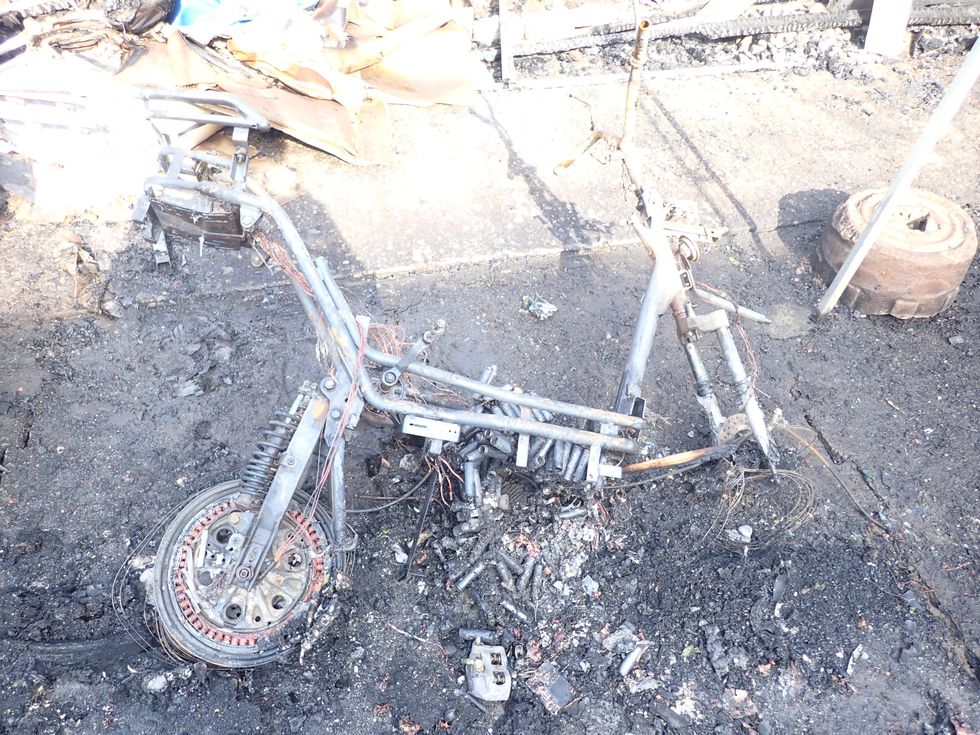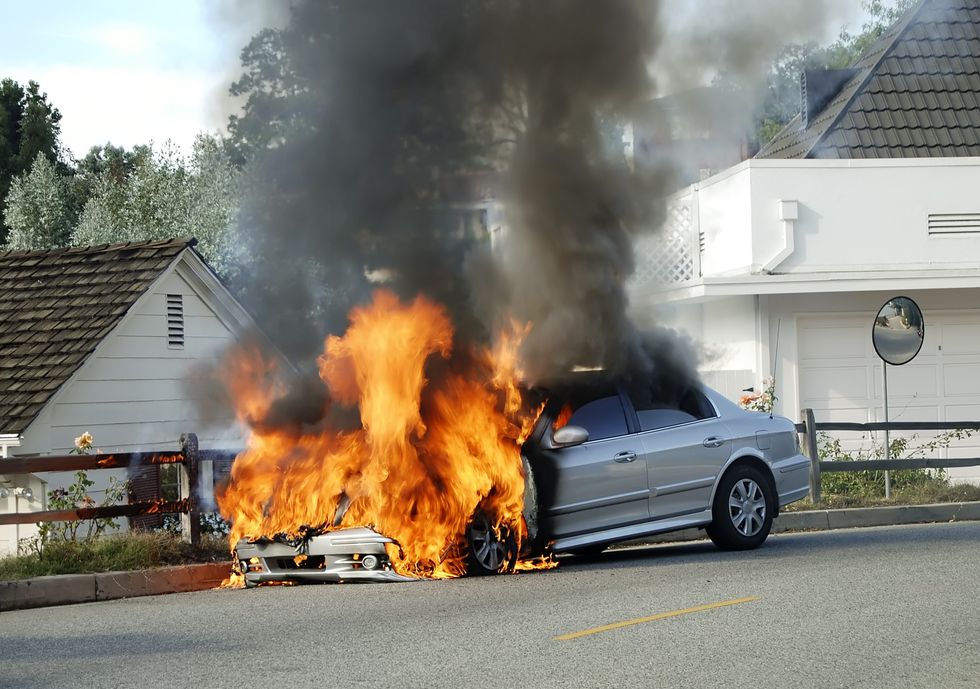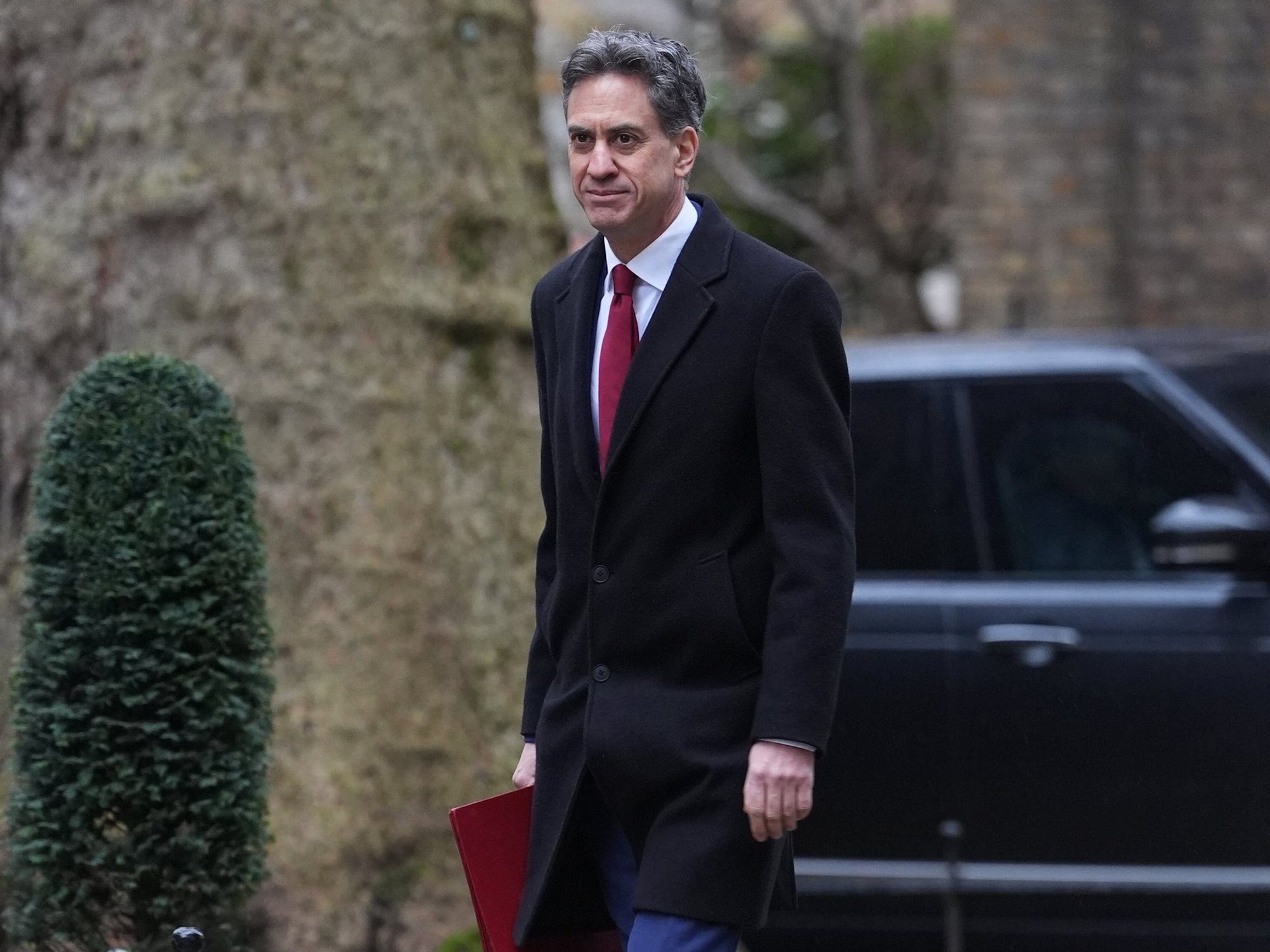Electric vehicles could be removed from roads over growing fire fears as Labour takes safety 'extremely seriously'

Lithium-ion Battery Safety Bill passes through next stage
Don't Miss
Most Read
A Parliamentary hearing has heard that measures could be taken to quell fears about electric vehicles over claims they cause too many fires and pose a risk to Britons.
The move comes as the Lithium-ion Battery Safety Bill moves to the next step of the House of Lords by entering the Committee Stage.
Once in effect, the Bill would help to ensure that more safety measures are introduced to electric vehicles including e-bikes, e-scooters and cars since they are fitted with lithium batteries that can be more susceptible to fires than other fuels or battery types.
The Bill was introduced by Liberal Democrat Lord Redesdale who warned that without proper regulation “the potential fire risks” are too high.
Do you have a story you'd like to share? Get in touch by emailing motoring@gbnews.uk

Lithium batteries can reach 600 degrees celsius when alight
|LONDON FIRE BRIGADE
Speaking in the House of Lords, Redesdale explained that since 2020, lithium-ion battery fires linked to the charging of e-bikes and e-scooters have contributed to 13 deaths in the UK, with many other people seriously injured or hospitalised.
The battery fires are caused by thermal runaway which occurs when cells of the lithium-ion battery produce an “exothermic reaction that cascades through all the cells of the battery” which causes a prolonged release of energy and results in fires reaching 600 degrees Celsius.
He said: “The ways in which people charge their e-bikes and e-scooters mean that these fires can be particularly dangerous. Many devices are charged in halls or stairwells—and often overnight, which is one of the reasons for the number of deaths associated with fires at home.”
The Lord detailed how the Bill is about protecting the public. While he understood that lithium-ion batteries are a “vital part” of the UK’s transition to net zero and a shift away from petrol and diesel, he said there are significant safety concerns.
According to Redesdale, a consultation by the Government on battery disposal is planned but he warned that the rate of recycling is low.
He suggested working on solutions to regulations that would allow batteries to be collected by delivery companies or supermarket delivery drivers to help with the safe disposal of them.
This could be a safe way of recycling millions of used batteries that “are in people’s drawers around the country without people dumping them in the rubbish”.
Earlier this month, online marketplace eBay agreed to ban the sale of private electric bikes and batteries after growing fire concerns. The proposed move is due to come into effect on October 31 with the company stating that only “eligible business sellers” will be allowed after this date.
An eBay spokesperson told GB News: “Consumer safety is a top priority for eBay. This policy change is in addition to the CE audits of listings offering e-bike batteries that we started last year, where we check that the products sellers are offering have valid CE documentation.”
As part of the drive to regulate lithium batteries used in electric vehicles, the London Fire Brigade has suggested introducing a safety fire certificate which would be mandated on all vehicles.
In response to the Bill, Baroness Jones of Whitchurch, the Parliamentary Under-Secretary of State for the Future Digital Economy and Online Safety, said the Government takes product safety “extremely seriously”.
She detailed how action has already been taken to focus on assessing the compliance of manufacturers and importers to ensure products are safe when placed on the market.
LATEST DEVELOPMENTS:
- Parking fees in popular tourist region to rise by 40 per cent next year impacting thousands of Britons
- Drivers in ‘danger’ of car tax changes and high insurance prices as Rachel Reeves debates motoring cost hikes
- M25 closed: Drivers warned of traffic mayhem as major lorry fire causes long rush hour delays

London Fire Brigade suggested introducing a safety fire certificate for cars
| GETTYShe noted that while batteries and chargers may individually be compliant with the law, “we know that if they are used in a combination that is not compatible there is a risk of product failure leading to serious fires”.
Jones added that it is “essential” that laws adapt and go forward to protect the public from fires and other pressing safety concerns.
The next stage of the Bill, which would be the first chance for line-by-line scrutiny of the proposed legislation, has yet to be scheduled.










